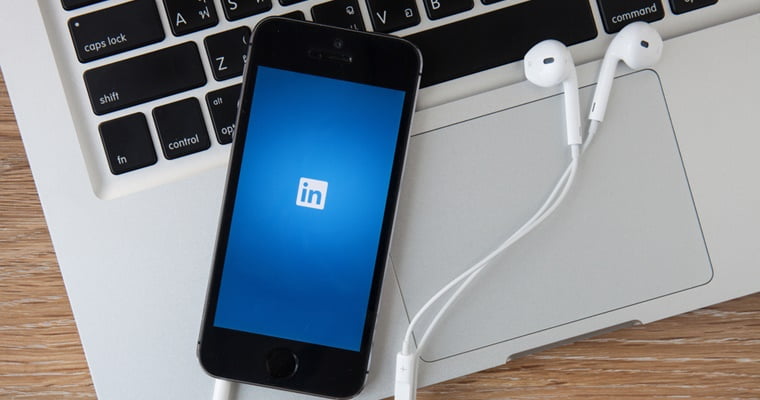

Buying sponsored updates on LinkedIn is pricey, but worth the expense if it improves your credibility and brings you new business. So how do you get the most for your money when paying for these posts?
To find out, we asked 10 founders from YEC for their best LinkedIn tips.
Target Your Audience Correctly
 With any conventional ad campaign, the inability to target correctly is just a waste of time and money. The same can be said about LinkedIn sponsored updates. The people that you want to see your ad are extremely diverse, so do a little bit of research to properly determine who they are. Don’t focus on the people who already follow you, target non-followers who would be enriched by yourcontent.
With any conventional ad campaign, the inability to target correctly is just a waste of time and money. The same can be said about LinkedIn sponsored updates. The people that you want to see your ad are extremely diverse, so do a little bit of research to properly determine who they are. Don’t focus on the people who already follow you, target non-followers who would be enriched by yourcontent.
– Cody McLain, SupportNinja
Include a Compelling Image
 In order to gain the most traction out of a sponsored update, you must include a compelling image. A high-quality image that corresponds with the headline will connect the reader to the story. I’ve personally found photos of people work the best in organic and sponsored posts.
In order to gain the most traction out of a sponsored update, you must include a compelling image. A high-quality image that corresponds with the headline will connect the reader to the story. I’ve personally found photos of people work the best in organic and sponsored posts.
– Shalyn Dever, Chatter Buzz Media
Focus on the Value Proposition
 Have a compelling message with a value proposition that focuses on the benefits to your customers or helps solve their problems. Effective messages lead, urge, and entice, as well as create urgency and offer rewards.
Have a compelling message with a value proposition that focuses on the benefits to your customers or helps solve their problems. Effective messages lead, urge, and entice, as well as create urgency and offer rewards.
– Andrew Kucheriavy, Intechnic
Target Your Updates
 Don’t forget to target your content by industry or job title. And make sure the update has something that’s tailored to that audience. We’ve noticed that really targeted campaigns that combine attributes important to defining your audience have brought us the best leads.
Don’t forget to target your content by industry or job title. And make sure the update has something that’s tailored to that audience. We’ve noticed that really targeted campaigns that combine attributes important to defining your audience have brought us the best leads.
– Vivek Sharma, Movable Ink
Be Clear and Concise
 Although you may want to include a lot of information, links, and even photos in your sponsored LinkedIn update, it’s important that you cut your content down and focus on being clear and concise. Users are most attracted to short and sweet headlines and content that gives a clear look into what you are promoting and whatyour overall message is. Cut out the fluff and get to the point.
Although you may want to include a lot of information, links, and even photos in your sponsored LinkedIn update, it’s important that you cut your content down and focus on being clear and concise. Users are most attracted to short and sweet headlines and content that gives a clear look into what you are promoting and whatyour overall message is. Cut out the fluff and get to the point.
– Miles Jennings, Recruiter.com
Use Remarketing Tags
 Remember that many first-time visitors from LinkedIn are at the beginning of their B2B buying cycle. Since buying traffic from LinkedIn isn’t cheap, it’s vital to maximize the yield from every click beyond the landing page. Make sure you have all landing pages tagged with remarketing pixels so you can reconnect with those early-stage prospects and close the sale with a stronger call to action.
Remember that many first-time visitors from LinkedIn are at the beginning of their B2B buying cycle. Since buying traffic from LinkedIn isn’t cheap, it’s vital to maximize the yield from every click beyond the landing page. Make sure you have all landing pages tagged with remarketing pixels so you can reconnect with those early-stage prospects and close the sale with a stronger call to action.
– Dan Golden, Be Found Online
Seed it with Interesting Comments
 Help create a conversion around the sponsored update by seeding some interesting (or controversial) comments early on. Once a thread starts developing, the audience will be a lot more engaged. Not only will this help show your sponsored update on more timelines and keep it there longer, it will also enhance the credibility (and follower count) of your company’s LinkedIn page.
Help create a conversion around the sponsored update by seeding some interesting (or controversial) comments early on. Once a thread starts developing, the audience will be a lot more engaged. Not only will this help show your sponsored update on more timelines and keep it there longer, it will also enhance the credibility (and follower count) of your company’s LinkedIn page.
– Pratham Mittal, VenturePact
Use a Compelling Title
 After testing many campaigns, we’ve concluded that compelling titles are the key to having strong LinkedIn sponsored updates campaigns. It’s not enough to have a clever title — the title should generate curiosity and force the click. If you really want to improve your titles, go through this Upworthy tutorial. It’s worth it!
After testing many campaigns, we’ve concluded that compelling titles are the key to having strong LinkedIn sponsored updates campaigns. It’s not enough to have a clever title — the title should generate curiosity and force the click. If you really want to improve your titles, go through this Upworthy tutorial. It’s worth it!
– Marcela DeVivo, National Debt Relief
Promote Your LinkedIn Group
 It’s usually far more effective to promote a call to action within the platform than trying to take a user to an external page to convert. LinkedIn groups are an effective tool to build and grow an engaged community. This is because everyone who joins your group on LinkedIn is automatically opted-in to your updates, so you can nurture your hard-won leads through messaging and content.
It’s usually far more effective to promote a call to action within the platform than trying to take a user to an external page to convert. LinkedIn groups are an effective tool to build and grow an engaged community. This is because everyone who joins your group on LinkedIn is automatically opted-in to your updates, so you can nurture your hard-won leads through messaging and content.
– Matthew Capala, Search Decoder
Add Google UTM Tracking Parameters to Your Updates
 We make a lot of our business decisions based upon analytics, and we can’t stress enough the importance of adding Google Analytics UTM parameters to yourLinkedIn sponsored update. If you use Google Analytics, you can tag each update to see which ones are performing the best for your website. In addition, you can see the number of conversions, visits and sales to get the best ROI foryour campaigns.
We make a lot of our business decisions based upon analytics, and we can’t stress enough the importance of adding Google Analytics UTM parameters to yourLinkedIn sponsored update. If you use Google Analytics, you can tag each update to see which ones are performing the best for your website. In addition, you can see the number of conversions, visits and sales to get the best ROI foryour campaigns.
– Andrew Saladino, Kitchen Cabinet Kings
[“source-searchenginejournal”]

